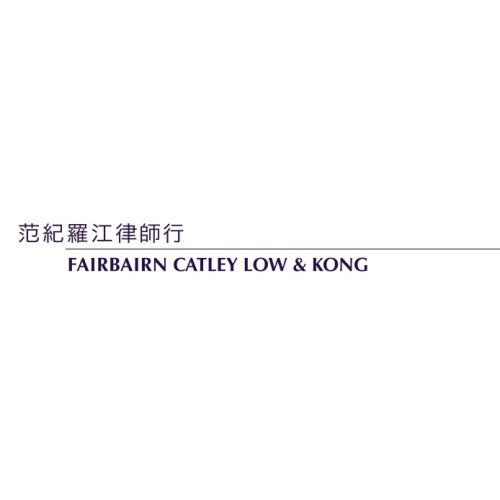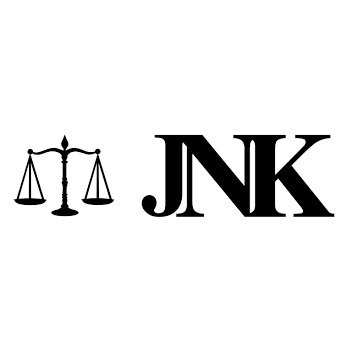Best Private Client Lawyers in Hong Kong
Share your needs with us, get contacted by law firms.
Free. Takes 2 min.
Or refine your search by selecting a city:
List of the best lawyers in Hong Kong
About Private Client Law in Hong Kong
Private Client law in Hong Kong refers to legal services that focus on the personal affairs and individual interests of clients. This area of law is primarily concerned with managing, protecting, and transferring personal wealth or assets. Key areas include estate planning, probate, wills, trusts, taxation, powers of attorney, and issues involving family and succession law. Private Client lawyers provide advice and practical solutions for individuals, high net worth families, and business owners to ensure their assets are structured and passed on smoothly and according to their wishes.
Why You May Need a Lawyer
You may need a Private Client lawyer in Hong Kong if you find yourself in one of the following situations:
- You want to create or update a will to determine how your assets will be distributed after your death.
- You wish to set up trusts to safeguard assets for your beneficiaries or to plan for tax and succession purposes.
- You are facing the probate process after a loved one has passed away and need help navigating the legal procedures.
- You are concerned about incapacity and want to set up Enduring Powers of Attorney or advance medical directives.
- You are involved in a dispute concerning an estate, trust, or inheritance and require representation or mediation.
- You need advice on property ownership or transferring assets during your lifetime.
- You have business interests and require succession planning to ensure smooth business continuity.
- You need guidance on cross-border estate or tax issues, especially if you or your family have assets in multiple jurisdictions.
Local Laws Overview
Private Client law in Hong Kong is influenced by local statutes, common law principles, and established case law. Key laws and regulations include:
- Wills Ordinance (Cap.30): Governs how wills are made, amended, and executed. It outlines requirements for validity, such as the need for two witnesses.
- Probate and Administration Ordinance (Cap.10): Details the process for obtaining probate (if a valid will exists) or letters of administration (if there is no will).
- Inheritance (Provision for Family and Dependants) Ordinance (Cap.481): Allows certain family members and dependants to make claims for reasonable financial provision from an estate.
- Trust Law (Cap.29): Sets out the formation, duties, and powers of trustees, as well as the administration of trusts.
- Enduring Powers of Attorney Ordinance (Cap.501): Permits individuals to grant someone legal authority to handle their financial affairs if they become mentally incapacitated.
- Hong Kong has no general inheritance tax or estate duty (this was abolished for deaths occurring on or after 11 February 2006), which is an important consideration for estate planning.
- Family law statutes and principles may also intersect with Private Client matters, especially in blended or international families.
Frequently Asked Questions
What is the difference between a will and a trust?
A will is a legal document that sets out how your assets will be distributed after your death. A trust is a legal arrangement where assets are held and managed by a trustee for the benefit of specified beneficiaries, which can take effect during your lifetime or upon death.
Do I need a will if I do not have significant assets?
Yes. Even if you do not have significant assets, having a will ensures that your wishes are followed and can help prevent disputes among surviving family members. It also allows you to appoint guardians for minor children.
What happens if I die without a will in Hong Kong?
If you die intestate (without a will), your estate will be distributed according to the laws of intestacy under the Probate and Administration Ordinance. This may not reflect your personal wishes and can cause delays and complications for your loved ones.
How do I ensure my will is valid in Hong Kong?
A will in Hong Kong must be in writing, signed by the testator, and witnessed by two people present at the same time. Both witnesses must also sign the will in the presence of the testator.
What is probate and when is it required?
Probate is the legal process by which a will is recognized by the court and the executor is empowered to administer the estate. Probate is required to deal with a deceased person's assets, including property, bank accounts, and investments.
How can I appoint someone to manage my affairs if I lose mental capacity?
You can set up an Enduring Power of Attorney to appoint a trusted person to make financial decisions on your behalf if you become mentally incapacitated. This must be completed while you still have mental capacity.
Are trusts commonly used in Hong Kong?
Yes, trusts are a common tool for asset protection, estate planning, and succession. They can offer benefits such as flexibility, continuity, and privacy in managing and passing on wealth.
Can foreigners make a will in Hong Kong for assets outside Hong Kong?
Foreigners can make a will in Hong Kong, but it is important to seek legal advice as different jurisdictions have different succession laws. Separate wills may be necessary for assets in different countries.
Is there inheritance tax in Hong Kong?
No. Hong Kong does not currently levy inheritance tax or estate duty on estates for deaths occurring on or after 11 February 2006.
What can I do if I have concerns about the administration of an estate?
If you believe an executor or administrator is not handling an estate properly, you can seek legal advice and, in some cases, apply to the court to intervene or remove them.
Additional Resources
Several organizations and governmental bodies can offer guidance or information related to Private Client matters in Hong Kong:
- The Hong Kong Law Society: Provides a directory of solicitors specializing in Private Client services.
- The Probate Registry of the High Court: Handles applications for probate and letters of administration.
- The Official Receiver’s Office: Offers information on insolvency and related estate matters.
- The Hong Kong Family Welfare Society: Offers support and counseling for family and succession issues.
- Department of Justice: Publishes statutes and legal guides relevant to Private Client law.
Next Steps
If you believe you need legal assistance with a Private Client issue in Hong Kong:
- Gather all relevant information and documents, such as wills, trust deeds, property records, and financial statements.
- Clarify your objectives or concerns, whether it is planning your own affairs, dealing with an estate, or resolving a dispute.
- Search for a qualified and experienced Private Client lawyer, ideally one who specializes in the issue you face.
- Schedule an initial consultation to discuss your situation and explore your options.
- Follow your lawyer’s advice and stay informed throughout the legal process.
Proper legal guidance can save time, reduce stress, and help ensure your interests and those of your loved ones are effectively protected.
Lawzana helps you find the best lawyers and law firms in Hong Kong through a curated and pre-screened list of qualified legal professionals. Our platform offers rankings and detailed profiles of attorneys and law firms, allowing you to compare based on practice areas, including Private Client, experience, and client feedback.
Each profile includes a description of the firm's areas of practice, client reviews, team members and partners, year of establishment, spoken languages, office locations, contact information, social media presence, and any published articles or resources. Most firms on our platform speak English and are experienced in both local and international legal matters.
Get a quote from top-rated law firms in Hong Kong — quickly, securely, and without unnecessary hassle.
Disclaimer:
The information provided on this page is for general informational purposes only and does not constitute legal advice. While we strive to ensure the accuracy and relevance of the content, legal information may change over time, and interpretations of the law can vary. You should always consult with a qualified legal professional for advice specific to your situation.
We disclaim all liability for actions taken or not taken based on the content of this page. If you believe any information is incorrect or outdated, please contact us, and we will review and update it where appropriate.
Browse private client law firms by service in Hong Kong
Hong Kong Attorneys in related practice areas.
Browse private client law firms by city in Hong Kong
Refine your search by selecting a city.
















